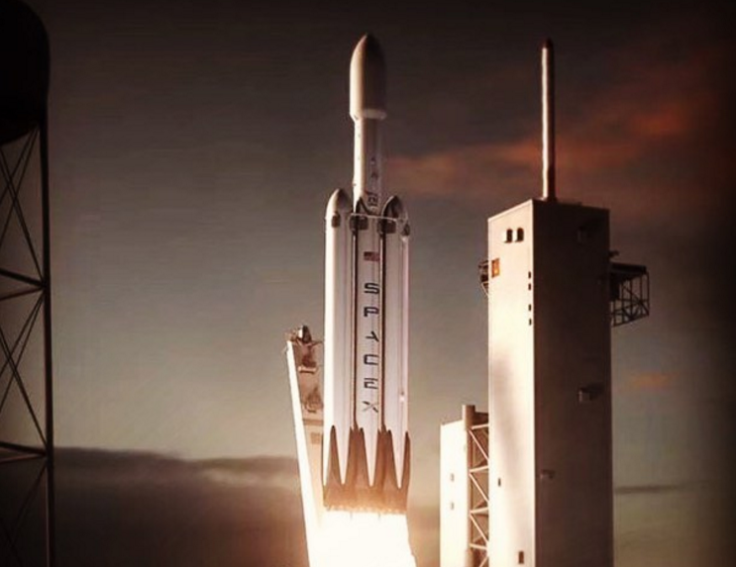SpaceX CEO Elon Musk announces Falcon Heavy's maiden launch set for November
The Falcon Heavy will be the most powerful operational rocket since Nasa's Apollo-era Saturn V moon rocket.

SpaceX CEO, Elon Musk, has announced that the company's ambitious and massive Falcon Heavy rocket will be launched for the first time in November from the historic launch pad 39A at the Kennedy Space Center in Florida. The tech billionaire made the announcement on Instagram and on Twitter on Thursday (27 July), posting an image of a conceptual depiction of the rocket's launch.
The two-stage Falcon Heavy consists of a modified Falcon 9 rocket core, flanked by two Falcon 9 boosters. The 230-foot-tall rocket is capable of lifting payloads of 140,000 pounds (63,000kg) to low-Earth orbit and around 30 tons to geostationary transfer orbit.
In comparison, SpaceX's current flagship rocket, Falcon 9, can propel 50,000 pounds into low-Earth orbit. The Falcon Heavy will be the most powerful operational US rocket since Nasa's famous Apollo-era Saturn V moon rocket that was last flown in 1973, the company said.
Like the Falcon 9, the rocket is designed to be partially reusable with all three cores intended to return to Earth and land after launch for reuse in future launches.
In response to a Twitter follower's inquiry, Musk said SpaceX aims to have the side boosters return to Cape Canaveral while the centre will land on a drone ship in the upcoming launch.
The company has yet to announce the exact date and time for the launch.
In May, SpaceX released a video of the first static test fire of the Falcon Heavy centre core at its rocket development facility in McGregor, Texas.
Back in 2011, Musk said that the rocket was set to launch in 2013. However, multiple delays in design and production, as well as the massive Falcon 9 explosion in September 2016, led to the rocket's maiden voyage pushed back further.
Side booster rockets return to Cape Canaveral. Center lands on droneship.
— Elon Musk (@elonmusk) July 28, 2017
Last week, Musk said that Falcon 9's inaugural launch could be rocky and may not even see the vehicle reach orbit.
"I think Falcon Heavy is going to be a great vehicle," Musk said during the International Space Station Research and Development Conference in Washington DC. "There's just so much that's really impossible to test on the ground, and we'll do our best. It actually ended up being way harder to do Falcon Heavy than we thought.
"At first it sounds real easy, you just stick two first stages on as strap-on boosters, but then everything changes. All the loads change, aerodynamics totally change. You've tripled the vibration and acoustics. You sort of break the qualification levels on so much of the hardware.
"The amount of load you're putting through that center core is crazy because you've got two super-powerful boosters also shoving that center core, so we had to redesign the whole center core airframe."
Musk noted that there is "a lot of risks" associated with the company's new massive rocket.
"Real good chance that the vehicle doesn't make it to orbit. I want to make sure to set expectations accordingly", Musk said. "I hope it makes it far enough away from the pad that it does not cause pad damage. I would consider even that a win, to be honest.
"Major pucker factor, really; that's, like, the only way to describe it."
However, he did encourage people to visit and view the inaugural launch.
"I encourage people to come down to the Cape to see the first Falcon Heavy mission," he said. "It's guaranteed to be exciting."
© Copyright IBTimes 2025. All rights reserved.





















